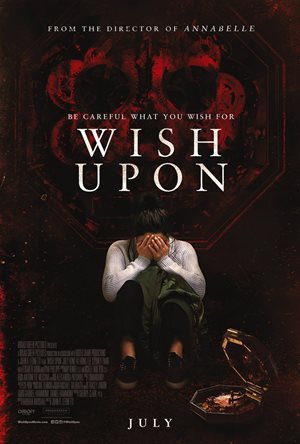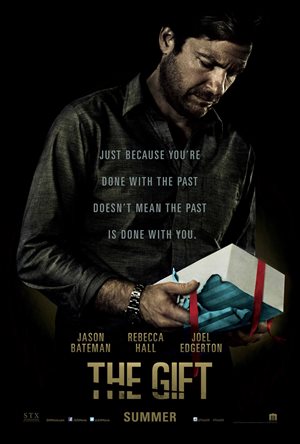
“The oldest and strongest emotion of mankind is fear, and the oldest and strongest kind of fear is fear of the unknown” - H. P. Lovecraft
If the horror genre was a breed of dog it would unequivocally be the Rottweiler. One of the most commonly and criminally misunderstood, historically misrepresented and synonymous with danger and fear despite their loving nature. People are not born to fear Rottweilers, we are wrongfully instructed to feel fear in their presence and that those who embrace them are somehow lesser than or unrelateable. At its core this woefully misguided distortion is the result of a mythos that has been perpetuated over time despite its roots being anecdotal at best. We will get back to, but let’s talk about horror for a moment.
Despite being the current cash cow and lifeline of theatrical cinema, horror has and is viewed by the common majority as low brow, a one-trick-pony and a point of automatic judgement and contention for those who don’t understand what it really is. That knee-jerk sweeping dismissal of it being nothing really but an ever-so- slight step above smut is part of why it is so important to talk about.
In many ways, horror films are one of the highest levels of cinema because they employ every device and trick in the bag to get a reaction and to set a mood. Of horror, Director Adam Wingard said “the great thing about horror films is that the reaction is immediate. In drama, with an audience, you can’t sense that. In comedy and horror, you can tell when something is working and filmmakers use every tool that they have to make that happen”
One rule of writing a horror screenplay is to keep the stakes high from the get go. To really snare the viewer you must be able to hit a nerve in them that gets them wrapped up in the story. You must be able to create a situation and characters that they see elements of themselves in. One way to do that is to go for the jugular and to go after the things they fear losing most, family. This psychological warfare often times places dogs, our companions and family that provide us with unconditional love, in peril.

The most recent example of this set-up I have seen was in a PG-13 fantasy-horror called “
Wish Upon”. The film is like a collision of “Pandora’s Box” and the classic tale “The Monkeys Paw” by W.W. Jacobs. The film is about Clare who was your average middle class, pigtailed girl riding her bike up her street with her best friend, a Golden Retriever named Max, by her side. Clare’s idyllic life was shattered when she witnessed the suicide of her mother.
Though many years have passed, Clare still suffers from PTSD from the trauma of her mother’s death and she has continued to have a hard time adjusting into her teen years, which isn’t easy for even you’re most privileged of people. With a little love and support from her father, friends and of course Max, Clare attempts to navigate high school and all of its pitfalls such as bullies and unrequited love.
When Clare comes across a box that claims to offer “7 wishes” she takes the chance to wish for riches, popularity and love. While her wishes are granted they each come at a hefty cost, the most painful being the death of her beloved canine companion. It is here where Clare’s downward spiral kicks into high gear because not only did she lose her best friend, she lost her sense of security. Dogs are fiercely loyal and have been used as protection throughout history. They are also known for their “6th sense”. Max, the Golden, was weary of the box from the day it appeared and many times in horror, you will see that dogs are the first to pick up on supernatural happenings that pose a potential threat. Without this protection, loyalty and love, Clare’s whole sense of safety and identity has been thrown into limbo which is especially frightening when you are trying to find a way out of a nightmare like she is facing.

Another interesting example of psychological warfare with canine companionship taking the centre stage comes from a slightly different vantage point. It comes from the point of view of a parent having lost a child. In the psychological revenge thriller “
The Gift” the inciting incident happens to our lead characters before we meet them. Simon, Robyn and their dog Mr. BoJangles (“Jangles”) have relocated for Simons job and to start over after Robyn suffers a late-term miscarriage which has left her feeling lost and alone.
On a shopping trip they run into Gordo who attended the same high school as Simon way back when. From here, Gordo oversteps many boundaries but it’s always with a dash of kindness in the form of a gift. Simon cuts the cord with Gordo as frequent visits to the home to see Robyn when Simon was at work has his guard up. Gordo did not take to the severing of the friendship well and that’s when things start to go downhill. Their Koi fish (a gift from Gordo) die inexplicably one day.
More disturbing is the disappearance of Jangles. Simon and Robyn both know all of these strange events are Gordos way of making them feel threatened and unsafe. Luckily, Jangles is returned just as inexplicably as he disappeared. Again, the dog napping is a power move, as is the sudden return.
The fact that this theme is so common in horror is quite telling of how incredibly powerful the bond between dogs and humans truly is. It shows how deep the psychological, physical and emotional ties are that we share and how vulnerable we become when we are parted. To say that dogs hold the key to health, happiness, security and love can all be perfectly proven by how horror uses all of those powerful qualities against us to make us face our deepest of fears.